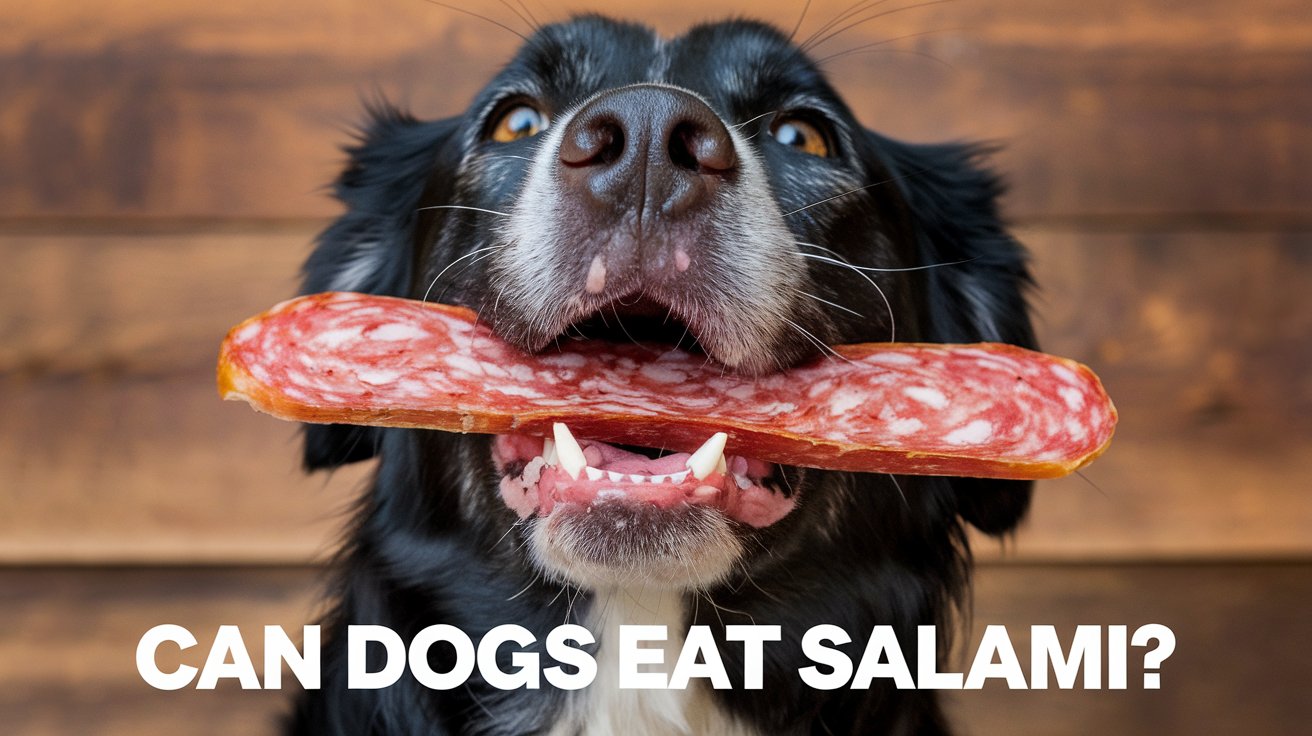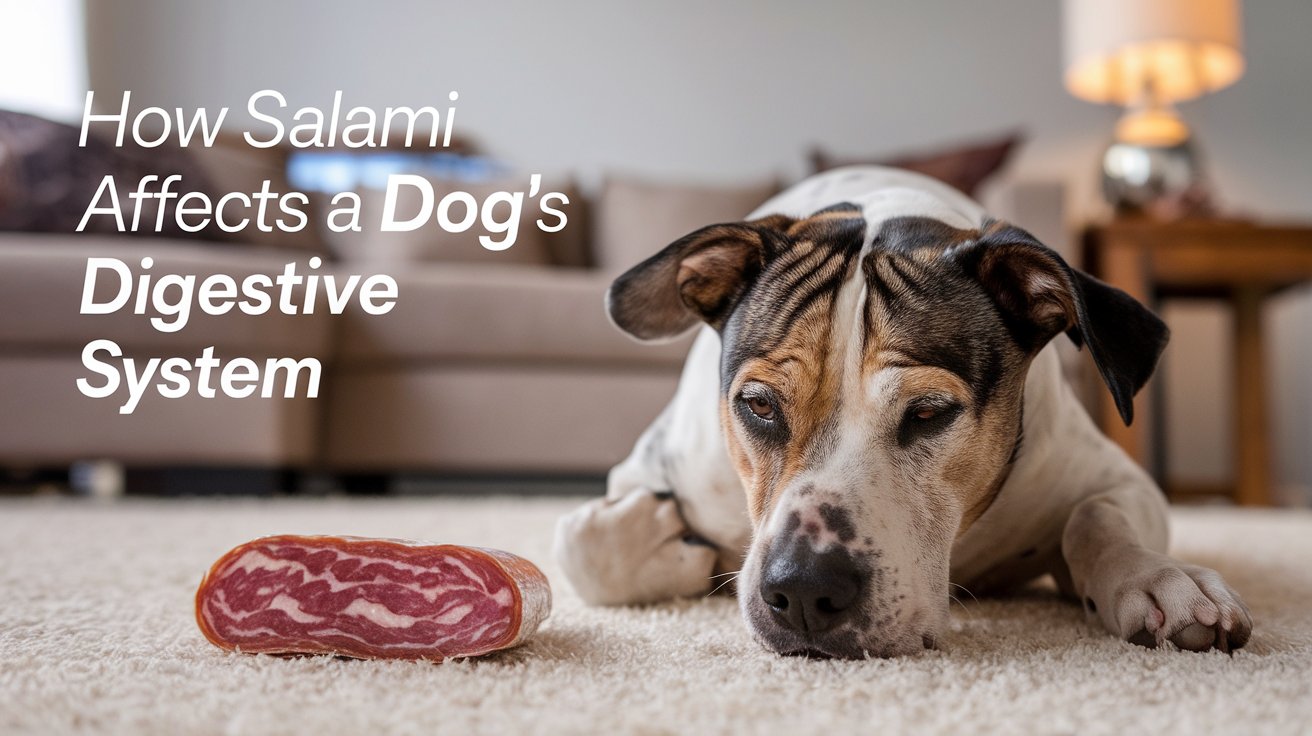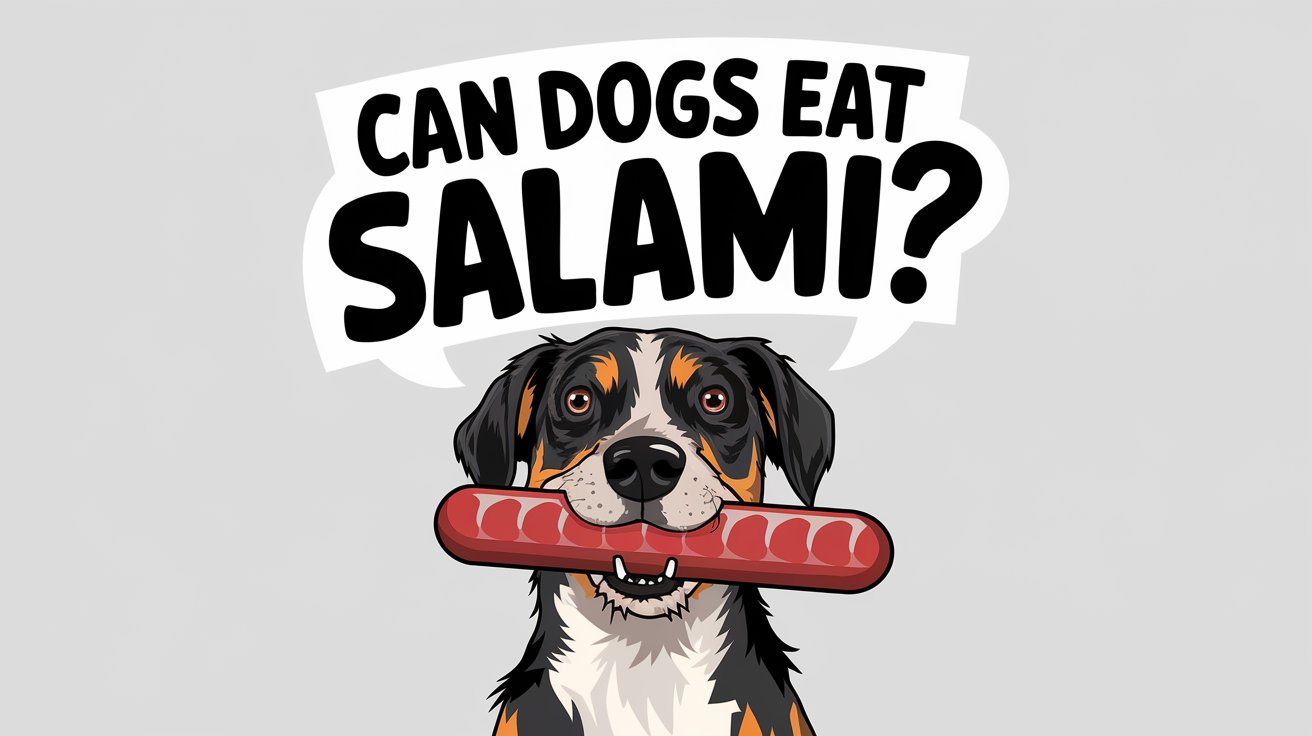
Can Dogs Eat Salami?
Can dogs eat salami? This is a question many dog owners might ask, especially when their furry friend gives them that irresistible look as they open up a package of salami. While salami is a beloved snack for many humans, it’s essential to think twice before sharing it with your dog. Salami, like many processed meats, contains ingredients that may not be suitable or safe for canine consumption. While it might not be immediately toxic, the long-term effects of regularly feeding salami to your dog can lead to a host of health problems.
Breaking Down Salami Ingredients: Is It Safe?
Salami is typically made from ground meat (often pork or beef), mixed with a variety of seasonings, preservatives, and fats. These ingredients may vary depending on the brand, but most types of salami include high amounts of sodium, garlic, and nitrates—none of which are dog-friendly. Sodium, in particular, is present in alarmingly high quantities in salami, and excessive intake of sodium can cause dehydration and more severe complications, such as sodium ion poisoning, in dogs. Garlic, a common ingredient in many types of salami, is toxic to dogs and can lead to anemia, a condition where the body doesn’t have enough healthy red blood cells.
Nutritional Value of Salami
From a nutritional standpoint, salami does offer a few redeeming qualities, primarily in its protein content. Dogs, being carnivores by nature, thrive on diets rich in protein. However, while the protein in salami may be beneficial in theory, the accompanying fats, preservatives, and high sodium levels negate these potential benefits. Feeding your dog pure, unprocessed meat sources like chicken or lean beef is a far healthier alternative to giving them salami.
The Hidden Dangers of Salami for Dogs
Salami is a processed meat, meaning that it undergoes curing and fermentation processes that alter its nutritional profile and introduce harmful additives. Processed meats like salami are often preserved using nitrates, which, when consumed in large quantities, can be dangerous for dogs. These chemicals can contribute to a higher risk of cancer over time and can cause digestive issues even after short-term exposure.
Additionally, the seasonings used in salami—such as garlic, onion powder, and black pepper—pose an even more immediate threat. Garlic and onions, in particular, are toxic to dogs, potentially leading to conditions like hemolytic anemia. Even a small amount of these ingredients, consumed regularly, can accumulate in your dog’s system and create health problems down the line.

How Salami Affects a Dog’s Digestive System
Even if your dog manages to eat a small amount of salami without showing immediate signs of distress, the long-term impact on their digestive system can be troubling. Salami’s high-fat content can contribute to weight gain and may increase the risk of pancreatitis, a serious and painful inflammation of the pancreas. Symptoms of pancreatitis in dogs include vomiting, lethargy, abdominal pain, and loss of appetite.
In the short term, a dog who consumes salami might experience gastrointestinal upset, including diarrhea, gas, and bloating. These symptoms may not always be immediate, but they often indicate that the salami has been too rich or too salty for the dog’s digestive system to handle.
Long-Term Health Risks of Feeding Salami
Feeding your dog salami occasionally might not cause any noticeable health issues, but regularly allowing them to consume this processed meat could have severe long-term consequences. Salami is full of unhealthy fats and preservatives that can lead to obesity, heart disease, and other metabolic disorders in dogs. Dogs that consume too much sodium, as found in salami, are at risk of developing high blood pressure and even kidney disease. Over time, this can severely shorten your dog’s lifespan and decrease their overall quality of life.
Why Some Dogs May Crave Salami
Alternatives to Salami for Dogs
Rather than giving in to your dog’s begging, consider offering healthier alternatives to salami. Some great snack options that are both safe and nutritious for dogs include:
- Lean meats like chicken, turkey, or beef (without seasoning or added salt).
- Carrot sticks or apple slices (without seeds) for a crunchy and vitamin-rich snack.
- Peanut butter (unsalted and without xylitol) for a protein-rich, dog-safe treat.
- Sweet potatoes baked or dried, as a fiber-rich, low-fat option.
These alternatives are not only healthier but will keep your dog just as satisfied without the risk of harm.
What you can Do If Your Dog Eats Salami
If your dog has managed to sneak a bite of salami, don’t panic. A small amount of salami might not cause any immediate harm, but it’s essential to monitor your pet closely for any signs of distress. Common symptoms to watch for include vomiting, diarrhea, excessive thirst, or lethargy. If your dog has consumed a large quantity of salami or shows any worrying symptoms, it’s crucial to contact your veterinarian immediately.

FAQs
Can puppies eat salami?
No, puppies should avoid salami as their developing bodies are even more sensitive to the harmful ingredients found in processed meats like salami.
What happens if a dog eats spicy salami?
Spicy salami can cause severe gastrointestinal issues for dogs, including stomach irritation, diarrhea, and in some cases, vomiting.
Can dogs eat other processed meats like pepperoni or bacon?
Like salami, other processed meats such as pepperoni and bacon are too high in fat, sodium, and preservatives to be safe for dogs.
Why is garlic in salami dangerous for dogs?
Garlic contains compounds that can damage a dog’s red blood cells, leading to anemia, which can be life-threatening if left untreated.
Is it ever okay to give your dog a small bite of salami?
While a very small bite on rare occasions might not cause harm, it’s best to avoid giving salami to your dog altogether to prevent potential health risks.
Are there any dog-safe cured meats?
Most cured meats, including salami, pepperoni, and prosciutto, contain high levels of sodium and preservatives, making them unsafe for dogs. Stick to fresh, unprocessed meats instead.
Conclusion: Should Dogs Eat Salami?
While dogs may love the smell and taste of salami, it’s not a suitable food for them to consume. The high sodium content, unhealthy fats, and dangerous seasonings found in salami can lead to both immediate and long-term health problems in dogs. Instead of salami, offer your dog healthier alternatives like lean meats, vegetables, or specially formulated dog treats. Keeping your dog’s diet free from processed meats like salami will ensure they stay healthy and happy for years to come.

I’m Haseem Ali, a passionate writer focused on dog diet, health, training, lifestyle, and care. I’m dedicated to sharing expert advice and practical tips to help fellow dog owners provide the best for their furry friends. When I’m not writing, I enjoy spending time with my own dogs and exploring new pet-friendly activities.
